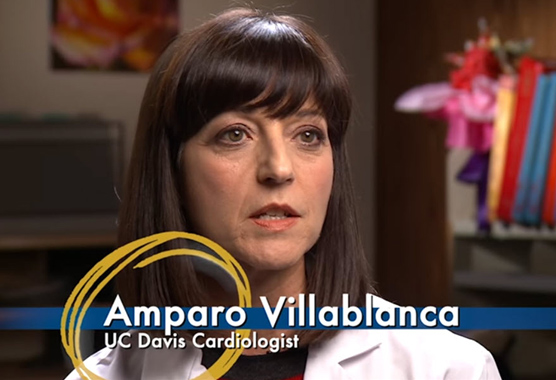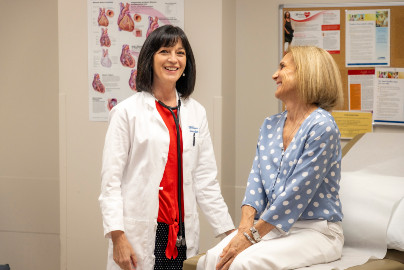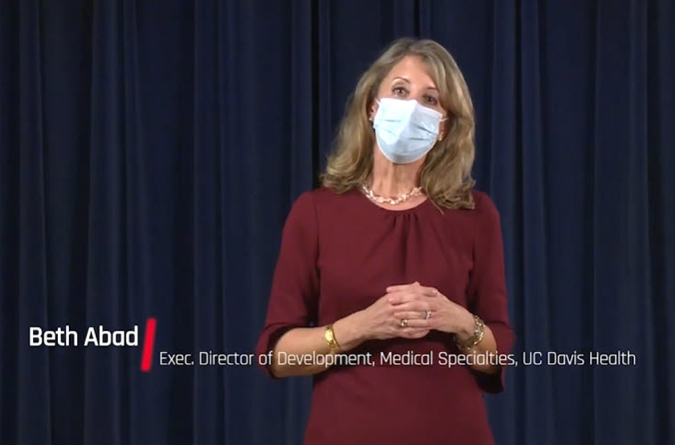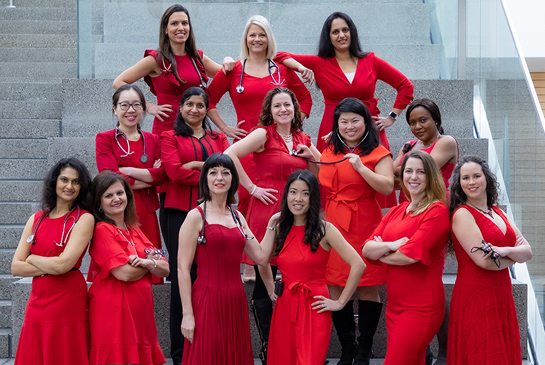Women's Cardiovascular Medicine Program
State-of-the-art care, focused on women and heart health
Women's Cardiovascular Medicine Program
Women's Cardiovascular Medicine Program
Heart disease in women is largely under-recognized; typically, a woman is older than a man when she exhibits symptoms, which are often more subtle, making detection and diagnosis difficult. As a result, cardiovascular disease in women is frequently underdiagnosed and undertreated, and many women fail to receive interventions that could save their lives.
Our Areas of Focus
- Excellence in women’s heart care that is comprehensive, woman-centered, gender specific, and evidence-based
- Community education and training of health professionals
- Innovative state of the art research
- Community engagement and advocacy
- Heart disease is the leading killer of women, accounting for more deaths than in men every year, with deaths rising in younger women. We are helping to help reduce heart disease deaths in women.
- Women remain unaware that heart disease is their leading health threat, falsely thinking they may be immune and that breast cancer is the leading cause of death for women. We are doing more to improve awareness for women.
- Health professionals report discomfort with treating heart conditions in women. We work to better prepare health professionals to take care of women with heart disease.
- Heart disease in women remains underdiagnosed and under treated with worsened outcomes, particularly for under-represented groups. We are addressing heart health disparities in women and vulnerable groups.
- There are important gender differences in heart disease that we need to better understand. We need more funding for research to understand the causes, prevention and treatment of heart disease in women.

“Listen very carefully to your body when it tells you that something is wrong. Even if it’s subtle, you know the changes are there. Don’t ignore them, but take steps right away to care for your heart.”
Barbara Ross
— atrial fibrillation
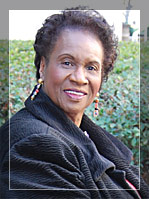
“Take the warning signs of heart disease seriously so you can be there for those who love you. Even small changes in how much you move and what you eat can make big differences in how you feel.”
Delilah Hendrix
— high blood pressure and high cholesterol

“Because of the nature of my condition, it wasn't imperative that I change my diet. However, I do watch my hydrogenated oils now. I eat whole grains, tofu and lean turkey. I even wear more sunscreen.”
Melissa Artigo
— heart valve surgery
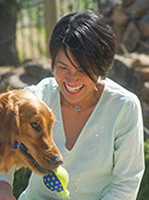
“You can't judge a book by its cover. Even though you might LOOK healthy, if you're not eating right, exercising or managing stress very well, you could still be a prime candidate for heart disease.”
Crystal Ching
— non-obstructed coronary ateries
Support Our Efforts
Make a difference and change these statistics! Please help support our efforts by donating to the Women's Cardiovascular Research Fund.

